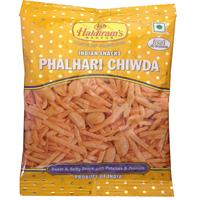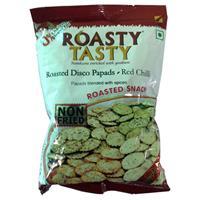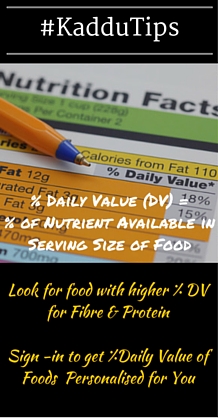
Haldiram Phalhari Chiwda
Products in ‘Crispies & Namkeen’ category range from 0.5 - 4

Current Product

- Scan before you snack!Snacking is a smart habit. Ready to eat/ cook snack options are often convenient and easily grab able. The key however, is taking a smart approach to snacking.Here are three simple tips to help you pick the healthier one
- Compare the serving size on the Nutrition Facts table to the amount of food you actually eat. For example serving size for biscuits is 24 gms (i.e. approx 3-4 biscuits) and if you eat 6 of them, your intake will change accordingly.
- Read the % DV (Daily Value). 5% DV or less is a little and 15% DV or more is a lot for that nutrient.
- Check for better - Less sodium, Less fat, More fibre, More Minerals like Calcium, Iron, etc.
- The Better Salt: Table, Sea or Rock?Different Types of Salt available in market can be categorized into 3 basic categories: Table Salt, Sea Salt and Rock Salt.The difference between them is the source of origin but all of them have about the similar amount of sodium. Rock Salt and Sea Salt also have additional minerals which are lost in the process of producing Table Salt.Read more about this in the blog - Taking with a pinch of Salt: rock, table or sea.
- Loaded with FATEnergy available from a food is based on Carbohydrate, Fat and Protein present in it. The ideal ratio of energy obtained from these components is 65% from Carbohydrates, 20% from Fat and 15% from protein.More than 30% of energy available in this product is from FAT, which is 50% more than the ideal amount. Foods with High Fat are often loaded with Saturated Fat and Trans Fat both of which contribute to life style diseases including diabetes, obesity or Cardiovascular.Again, one should not go on the other extreme of having low fat diet as some amount of fat is required for various bodily functions like storing of energy, absorption of fat soluble vitamins such Vitamin A, D, E and K, insulate us and protect vital organs besides synthesis of specific hormones and cell membrane formation.Thus, it is important to eat food which has each nutrient in the right quantity and limit food products that give too much of one nutrient.
Disclaimer:Product Analysis is based on general practices in the field of Nutrition. Please check with or consult a qualified and licensed medical professional for its suitability to you.













